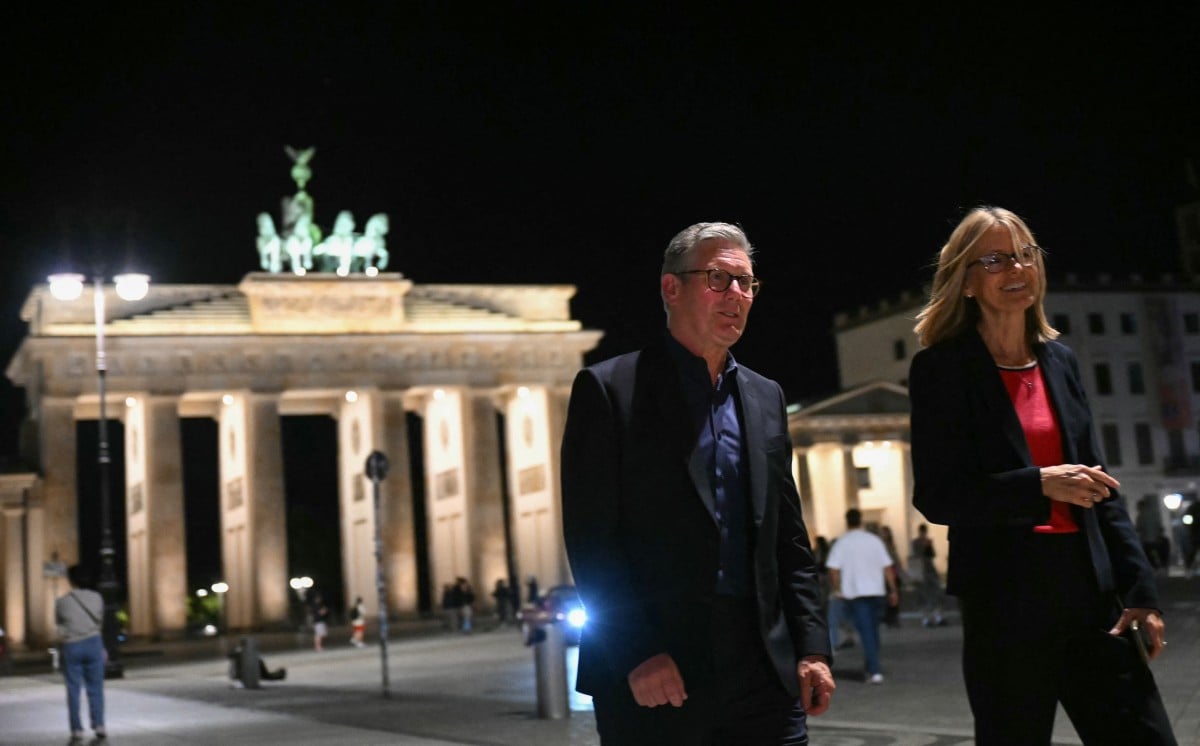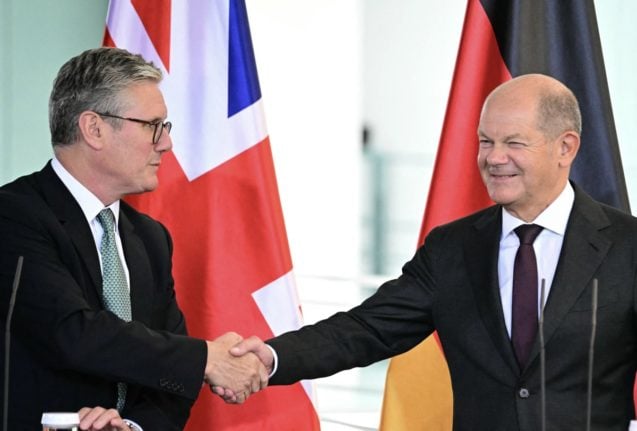The move toward a reset, welcomed by German leader Olaf Scholz, will also include the British premier travelling to Paris for talks with President Emmanuel Macron on Thursday.
Starmer said the proposed accord, set to include a defence agreement and deeper links on science, technology as well as trade, was hoped to be agreed by year’s end.
The British premier called the planned treaty a “once in a generation chance” to aid a “wider reset” in UK-EU ties.
Scholz welcomed his UK counterpart’s desire for a “reset”, adding: “We want to accept this outstretched hand.”
Labour had said it would seek a security and defence treaty with Germany if it won the July 4 general election, which it did by a landslide – propelling Starmer to the premiership.

Starmer’s host Scholz has been under pressure to crack down on illegal migration after a suspected Islamist knife attack in the western city of Solingen on Friday.
The stabbing, which left three people dead and eight injured, was allegedly carried out by a 26-year-old Syrian man who evaded attempts by German authorities to deport him.
Starmer’s premiership has faced an early challenge after a deadly knife attack in Southport last month sparked anti-immigration riots, which officials say were stoked by far-right elements and false information.
Starmer said that he and Scholz had “agreed to develop a joint action plan to tackle illegal migration” and “smash the smuggler gangs who perpetrate this vile trade”.
Ukraine aid issue
The pair also discussed the war in Ukraine, with both countries under pressure over their aid for Kyiv to help it fight off Russia’s invasion.
Scholz insisted that both countries “stand firm at Ukraine’s side”, despite “recent attempts to sow doubt about this commitment”.
“Our resolve is as ever to stand shoulder to shoulder with Ukraine to provide the support that it needs for as long as it needs,” Starmer added.
Kyiv’s Western allies have reacted cautiously to Ukraine’s recent incursion into Kursk, worried that their weapons could be used on Russian soil, possibly sparking a strong reaction from Moscow.
Britain allows Kyiv to deploy a squadron of 14 British-made Challenger 2 tanks as it sees fit, but has put limits on the use of its long-range Storm Shadow cruise missiles.
Starmer said Wednesday that “no new decisions have been taken” in terms relating to tactical questions on the use of weapons.
Germany has repeatedly refused to send Kyiv its long-range Taurus missiles, over fears of escalating the conflict.
Germany has been the second-largest contributor of aid to Ukraine after the United States, but plans to halve the budget for that aid next year.
Where Germany spent around eight billion euros ($9 billion) on aid for Ukraine in 2024, the latest draft earmarks around four billion euros.
READ ALSO: EXPLAINED – Why German leaders are bashing planned Ukraine aid cuts
UK-Germany security pact
At a European Political Community (EPC) summit in England two weeks after his election win, Starmer told European leaders the UK would be a “friend and partner” to them.
Starmer has ruled out rejoining the European single market, customs union or freedom of movement — to avoid reopening what remains a thorny issue among British politicians and the public alike.
But he does want to negotiate a new security pact with the bloc and a veterinary agreement to ease border checks on agricultural foods, as well as an improved trading deal.


 Please whitelist us to continue reading.
Please whitelist us to continue reading.
Member comments